Elden: Path of the Forgotten (Steam) Review
I've always been fascinated by the nightmarish creatures and worlds bred by the writings of H.P. Lovecraft and while some of those stories are truly worth reading I actually like what others have been creating in that style so much more. Additionally, Lovecraft was disgustingly racist, and sometimes it's hard to separate that work from the writer. Old Ones, twisted towns, and dark visions of terror far beyond human comprehension are all perfect for creating something new and exciting. That fear of the unknown is so ingrained into the human psyche that once one notices it, it can fester into a maddening spider web of thoughts. This particular fear is something that drives Dylan Walker of ONERAT Games and that is what eventually led to the development of Elden: Path of the Forgotten.
During our interview with Walker on the Forever Classic Podcast, we learned about the game's humble history, its start as a university project, and the eventual connection to Another Indie, a company based out of Taiwan that published the game and allowed Walker and his small team much more freedom to work and focus. In many ways, I actually find Walker's struggles and explanations of the game's images to be more interesting than the game itself and I highly recommend listening to that interview before playing as it contextualizes much of the experience.
Elden: Path of the Forgotten is a Lovecraftian adventure game centered around the search for one's mother who warps into a nightmare dimension after messing with some forbidden magic. The game's hero, Elden, is actually pretty similar to Walker himself, a creator who left home at 15 and lived in some pretty harsh conditions. Even Walker's actual pet bird becomes a core element of the game as the bird is the catalyst for spells and points out items in the world. Wielding either a simple sword, axe, or spear Elden braves the violent world through resourcefulness and awareness.
Gameplay is similar in fashion to Hyper Light Drifter or Phantom Trigger but the slower pacing reminds me more of the original Legend of Zelda than these other indie contemporaries. There's a rigidness to the game that will likely be improved upon with patches but the roughness actually drove home some of the darker tones for me. It's almost purposefully confusing and borders on impressionism as there is writing that is never translated, similar-looking paths that often loop into one another, goals that can be obtuse, and there is a constant assault of monsters.
I recommend playing this one with a controller as the combat can require some pretty precise timing and spacing; I found that the game worked best with an Xbox One controller. Again, some of these issues are being addressed in patches but it's worth mentioning that I actually struggled to play this one for a while. Hit detection is spotty, especially with some of the bosses and there’s virtually no player feedback upon taking damage. Technical issues aside, I pushed through to see what was at the end.
The mystery and the lack of facial expressions with Commodore 64 style cutscenes were enough to keep me pushing through the waves of enemies and the key hunting. It's a really appealing art style and the sound design plays well into this to keep things unsettling. If anything, Elden: Path of the Forgotten latches onto that tone and keeps a hold of it throughout, making for a surreal adventure through a land of strangeness.
Combat focuses on using one of the three weapons combined with a few magical spells. There’s a stamina meter to keep track of and one has to frequently eat apples to stay healthy. Monsters have their set patterns but they can easily get knocked into weird places in the level, forcing one to either poke at it with the spear or throw magic missiles from afar. Depending on how much health the enemy has, this can be time-consuming. There’s also not a lot of stun time for the enemies, so taking damage is almost assured with some enemy types. The first boss embodies this wholeheartedly, a huge monster that has a strangely small hitbox. There are also black orbs that just hold the player in place for a while and fly in with a bit more speed than they need to.
I was able to finish Elden: Path of the Forgotten despite my issues with it in just a few hours and I wish there was something else there to keep me playing. Upon reaching the ending, I actually thought that I had triggered a bad ending or something like that but I did eventually learn from our chat with Walker that the ending was meant to be bleak and up to interpretation. He cited that much of his inspiration comes from Dark Souls while visual elements were more from the indie game Crawl which explains why there are more questions than answers. I wasn't quite sure what to make of the game's ending and the journey as a whole felt more like a woven together series of loosely connected emotions more than a plot. At one point Elden is pushing through a desert filled with dragons and Cthulu-looking creatures and in another, he's in a dark forest fighting evil blue wombats. I can get behind dimension-hopping and such, I just wish there was a way to translate the writing strewn about the levels or get more of the intended plot on a second playthrough or something.
Come to think of it, Elden: Path of the Forgotten would have benefited greatly from a story that evolves with subsequent playthroughs like what was achieved in Nier: Automata or Undertale. Unfortunately, what's here is pretty rough and clearly feels like an early game development effort from an amateur creator. That said, I think that's the game's appeal.
Not everything I play has to be a perfectly crafted experience, in fact I relish in finding obscure titles as I think almost every game has an interesting story behind it or could maybe connect to someone's particular emotions at a certain time in their life. To Walker, this game is likely a bit of a baptism of his youth as well as a standard planted in the sand of the gaming world. He did it. He made a game, found a publisher, and even got it ported to the Nintendo Switch. That achievement is worth celebrating no matter the quality of the game or how I personally feel about it.
I hope to see more game development from Walker and those that worked alongside him; I commend publishers like Another Indie that go out of their way to find these smaller projects. Based on our interview with Walker, we can assume that he will stick to horror themes but only time will tell what madness lies ahead.
SCORES
GAMEPLAY - 4/10
VISUALS - 6/10
SOUND - 6/10
CONTROLS - 4/10
REPLAY VALUE - 4/10
OVERALL - 4.8/10
Elden: Path of the Forgotten is available on Steam and Switch for $19.99 USD and more information can be found on the official website. Screenshots were captured through the native features of Steam. A digital copy was provided a few days early for the purpose of podcast discussion and review.
We also talked with Vlad of Another Indie a while back about Sinner: Sacrifice for Redemption, their publishing, Chinese game development, and what it was like to be a professional ballet dancer. For another game with dark themes, look no further than our review of the remakes of Resident Evil 2 or Resident Evil 3.
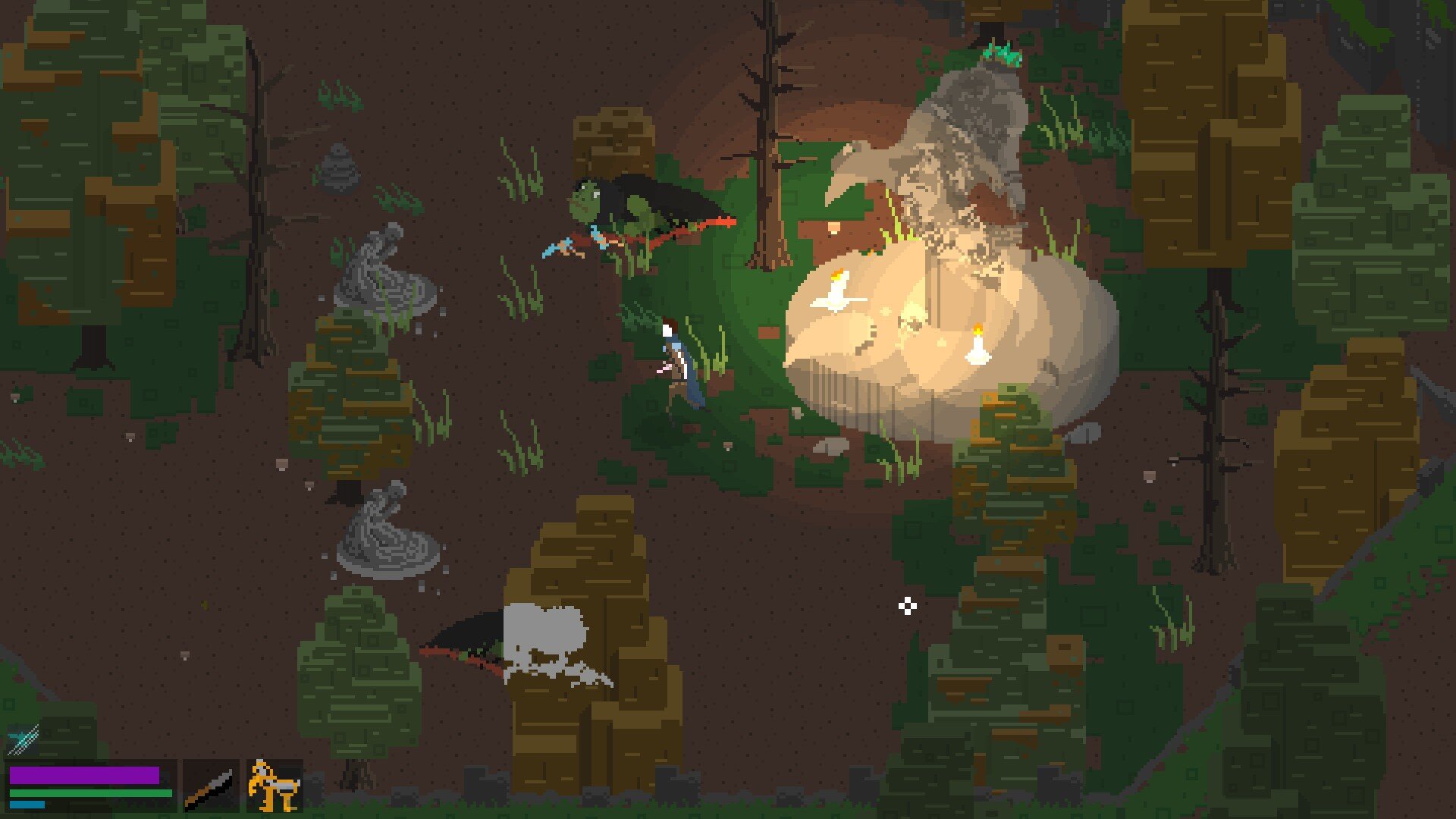
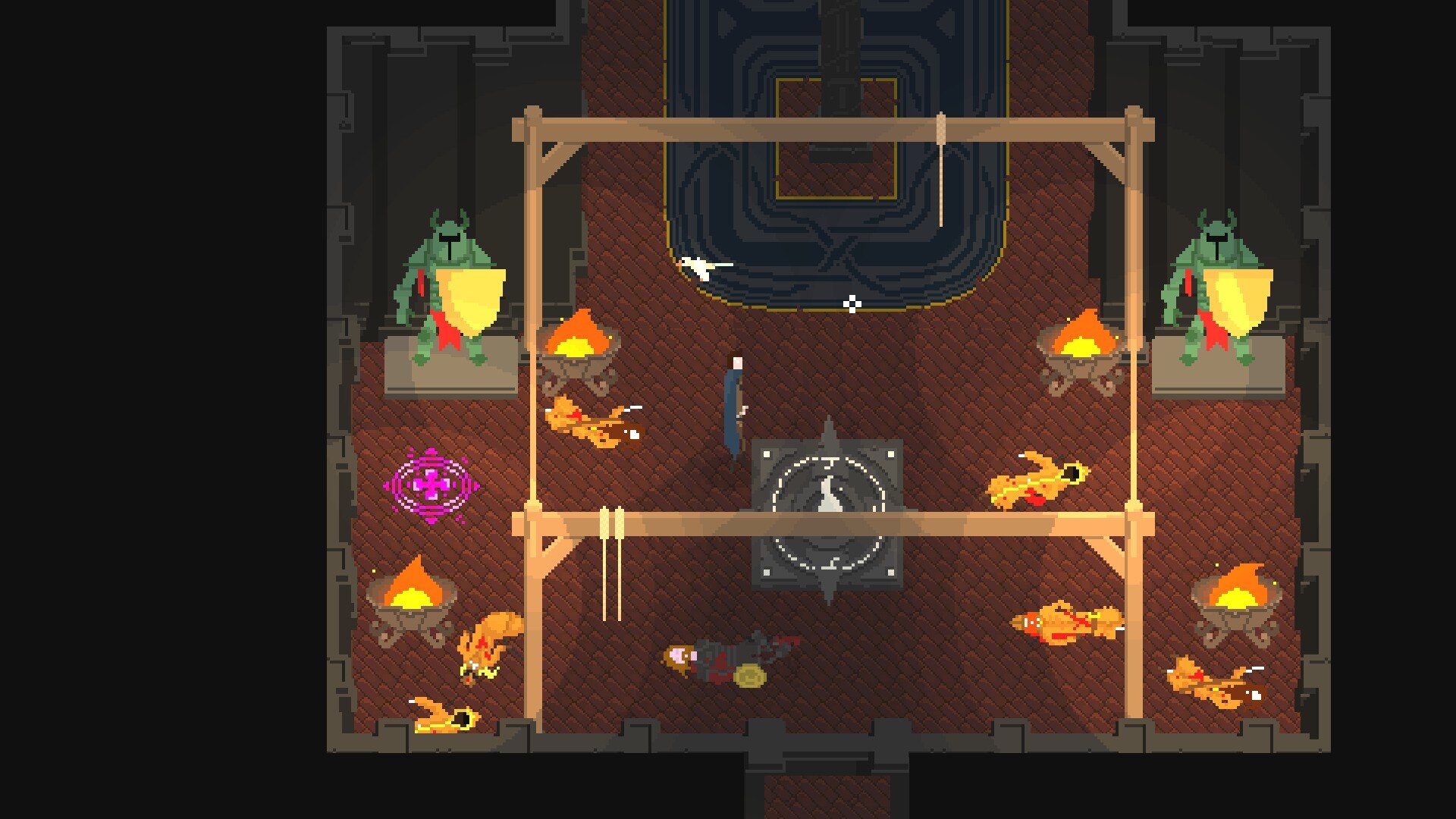
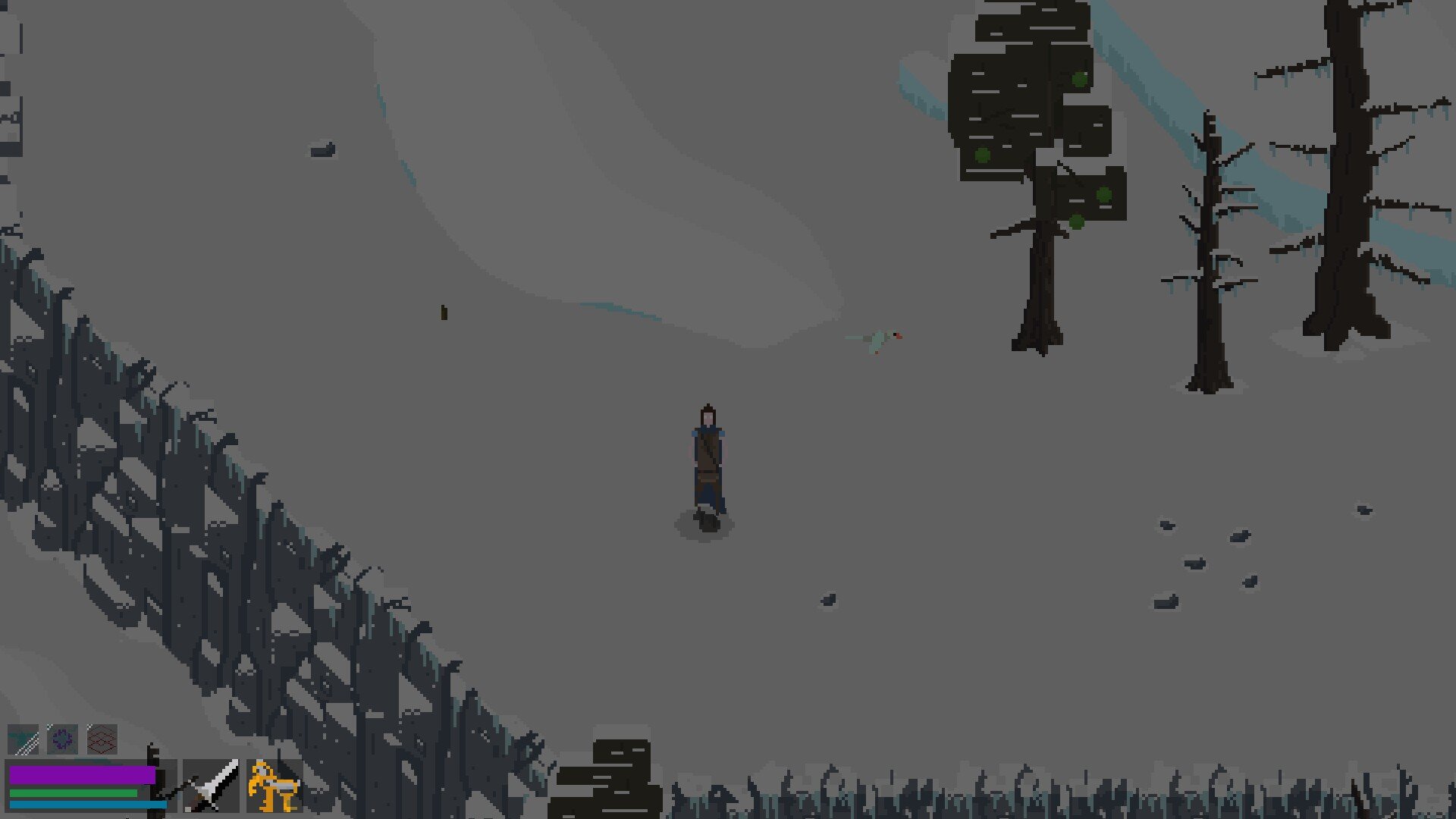
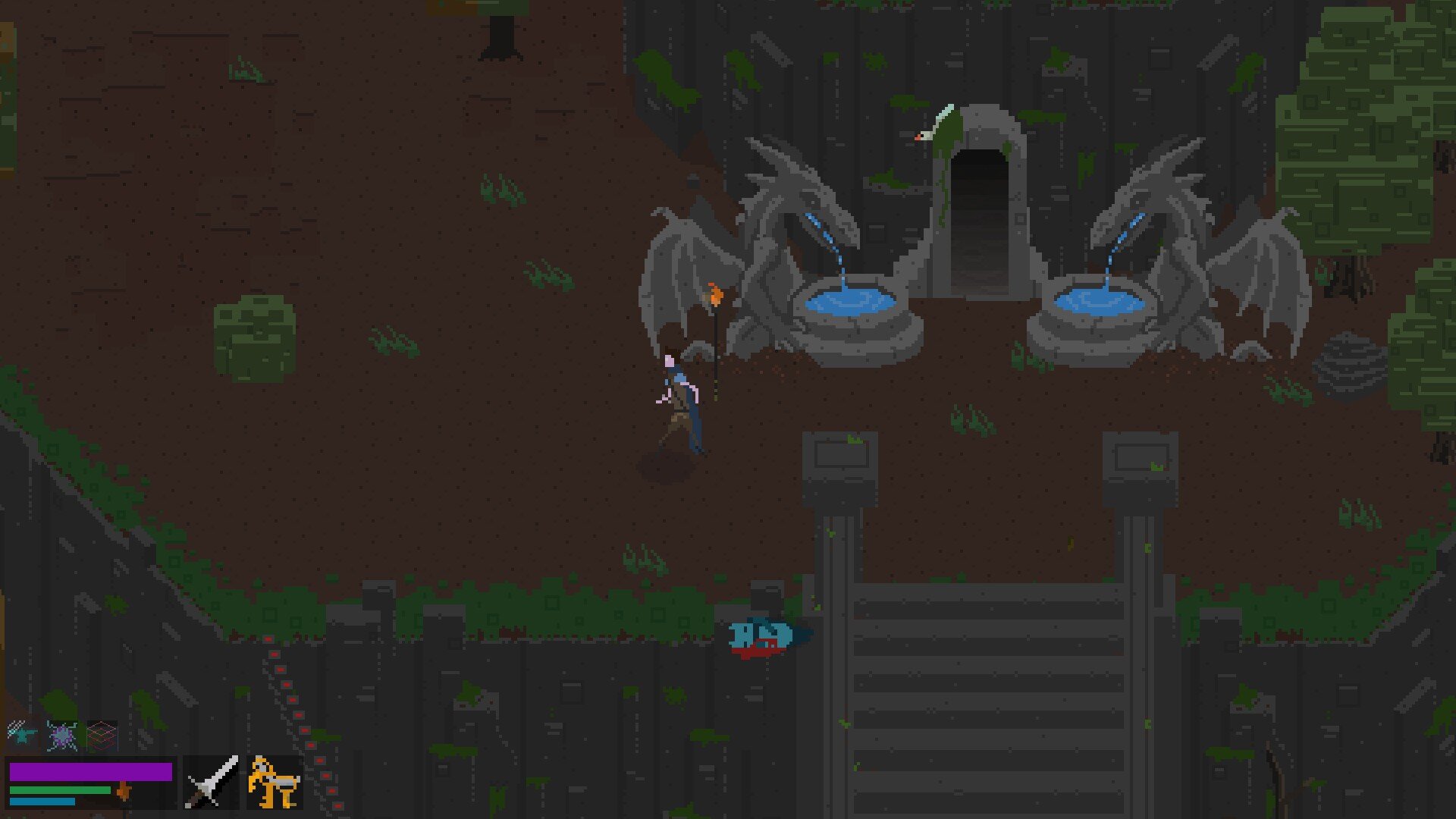
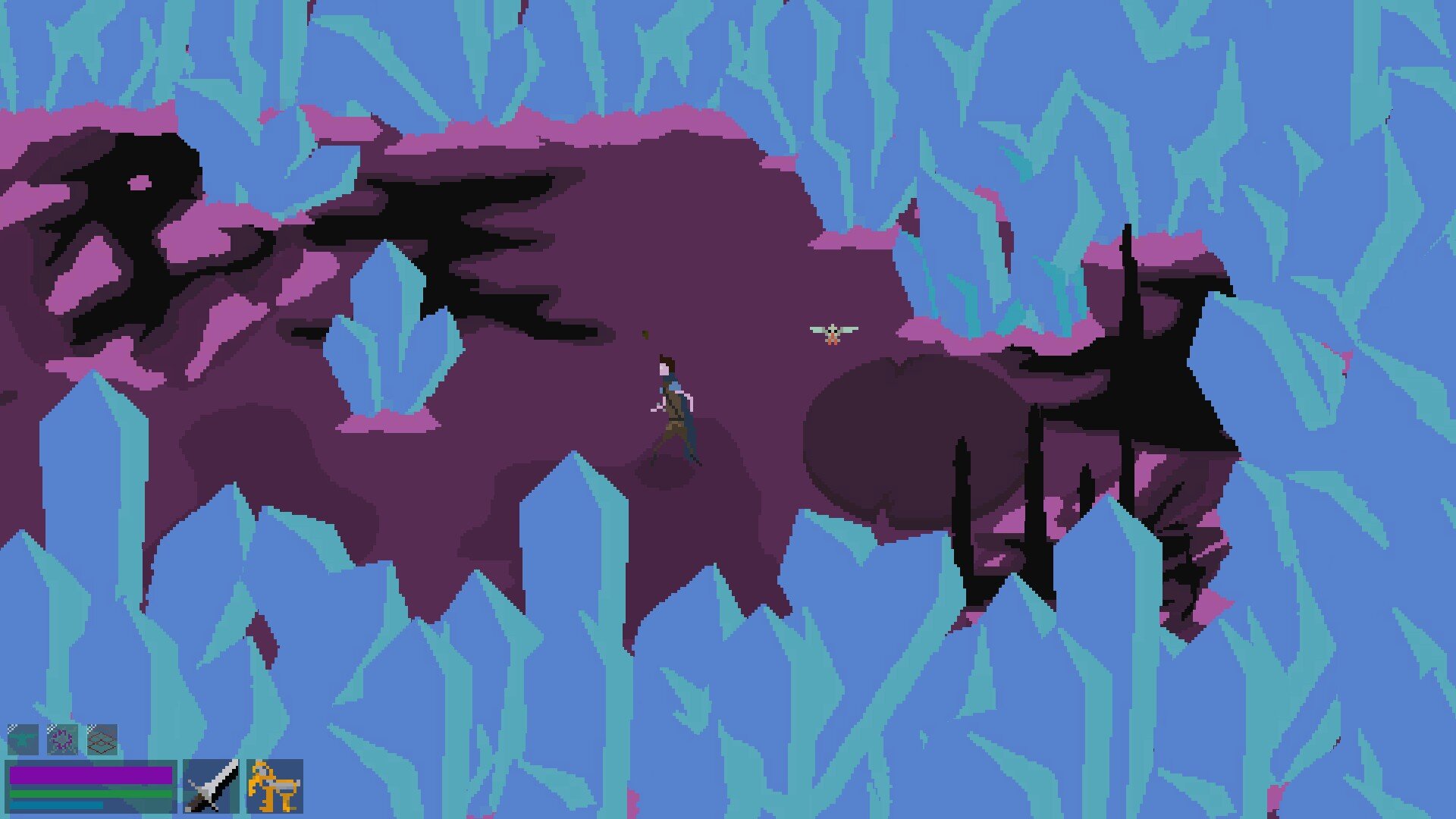






On a path that will ultimately result in his own destruction, James Savage takes on his vampiric ex-girlfriend Draculae in El Paso Elsewhere, a moody neo-noir action shooter from Strange Scaffold.